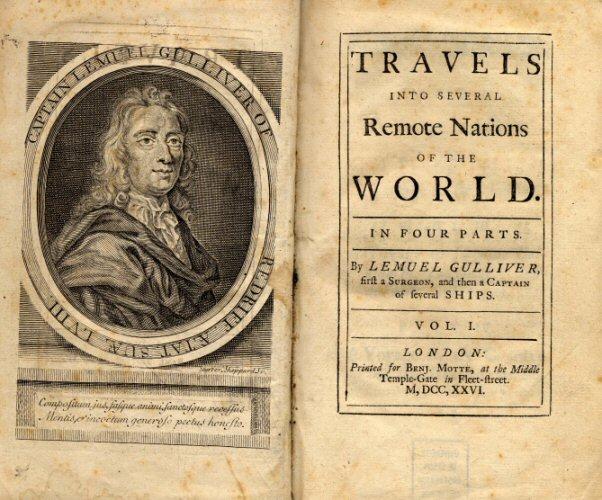 |
| Charles Jervas, public domain via Wikimedia Commons |
Born in Dublin, Swift lived Ireland, on and off, for the greater portion of his life. His early childhood was divided between England and Ireland and he spent some of his adult years in England too, where he moved among London-based literary circles that included Alexander Pope, John Gay, John Arbuthnot.
He was politically active during this time, first as a Whig, later as a Tory. His outspokenness and forthright manner probably weighed against him in the long run however. When he sought a church appointment in England, in reward for his services, the best position his friends could secure for him was that of Dean of St. Patrick's Cathedral in Dublin. It seems that Queen Anne, had taken a particular dislike to Swift and made it clear that he would not have received even that position if she could have prevented it. Among other things, she regarded his work, A Tale of a Tub, to be blasphemous. With the return of the Whigs to power in 1715, Swift left England and returned to Ireland, it is said "in disappointment, a virtual exile [and] to live like a rat in a hole" (source: Wikipedia).
Whatever about his personal disappointment, his literary output betrays little evidence of despondency. In his pamphleteering, he turned his attention to Irish causes with Proposal for Universal Use of Irish Manufacture (1720), Drapier's Letters (1724) and A Modest Proposal (1729), earning him the reputation of an Irish patriot and also, the attention of the authorities, who made unsuccessful attempts to silence him. At one point, a reward was offered by the government to anyone disclosing the identity of the author of Drapier's Letters. Though it was hardly a secret, still, no one turned him in and by the end, the Government had been forced to call upon no less a person than Isaac Newton to counter some of the accusations and points of contention contained within Drapier's Letters.
 |
| Public Domain via Wikimedia Commons |
The enduring appeal of Swift's fictional travelogue is due to many things, not least being the humorous, prodding style that he evokes and provokes. Swift himself said that he wrote Gulliver's Travels "to vex the world rather than divert it". Despite frequent bowdlerisation and adaptation, typically oriented towards younger readerships and modern audiences, it retains an essential universality of outlook that has outlived many of the political, religious, philosophical quarrels of the time, which the author is intent on poking fun at.
Jonathan Swift died, as his epitaph says, "on the 19th Day of the Month of October, A.D. 1745, in the 78th Year of his Age." His later years were marred with illness that affected him mentally as well as physically. "I shall be like that tree," he is said to have remarked of his own demise, "I shall die at the top."
In his will, he left the bulk of his estate towards the founding of a hospital for the mentally ill in Dublin, which opened in 1757 and exists to this day, not far from St. Patrick's Cathedral, after which it is named.






No comments:
Post a Comment